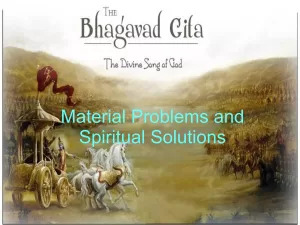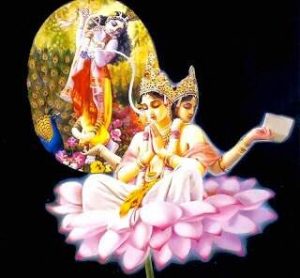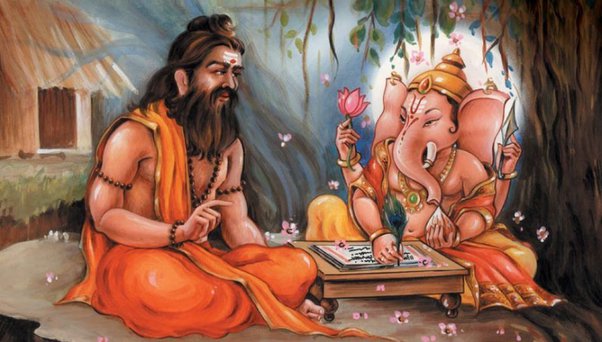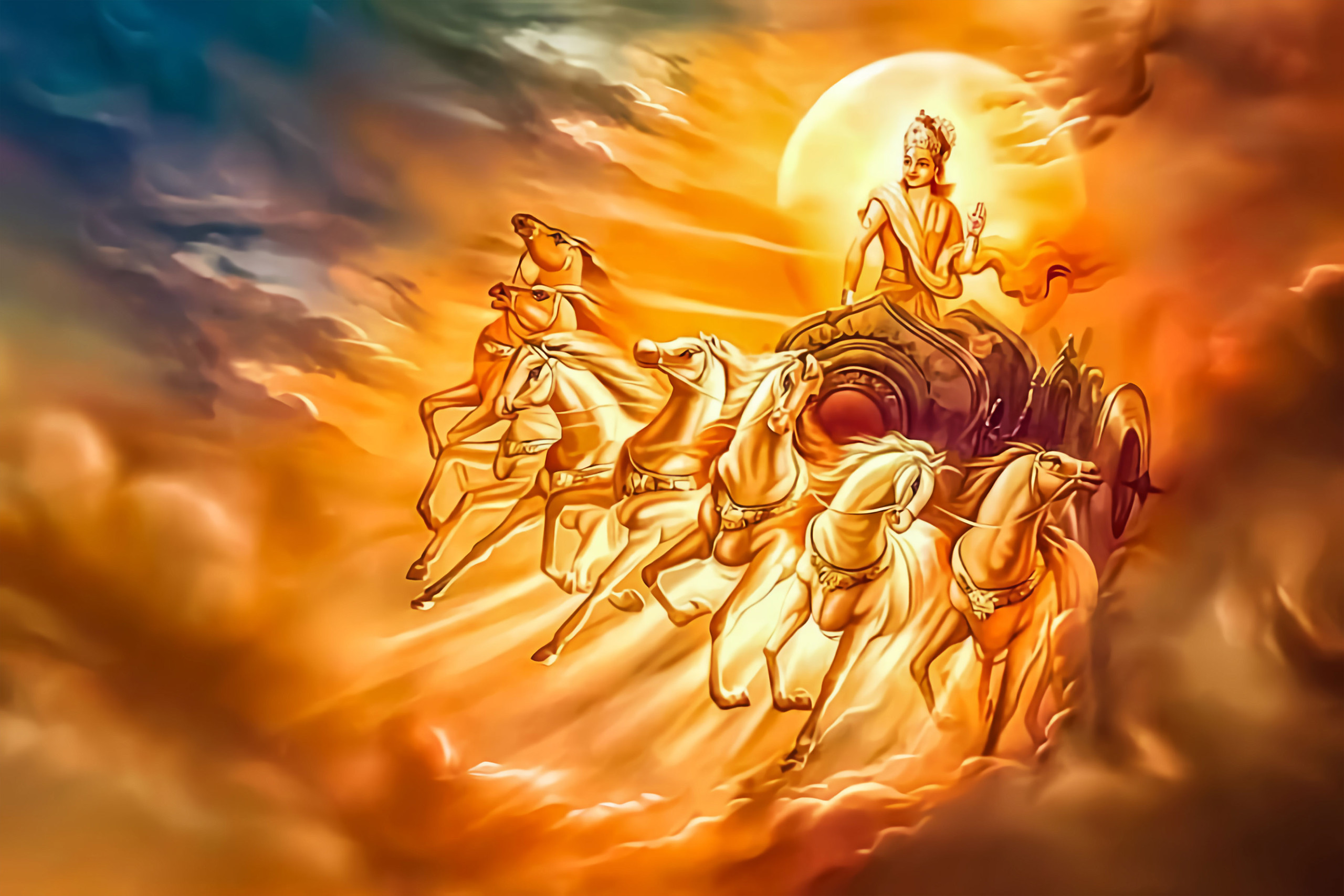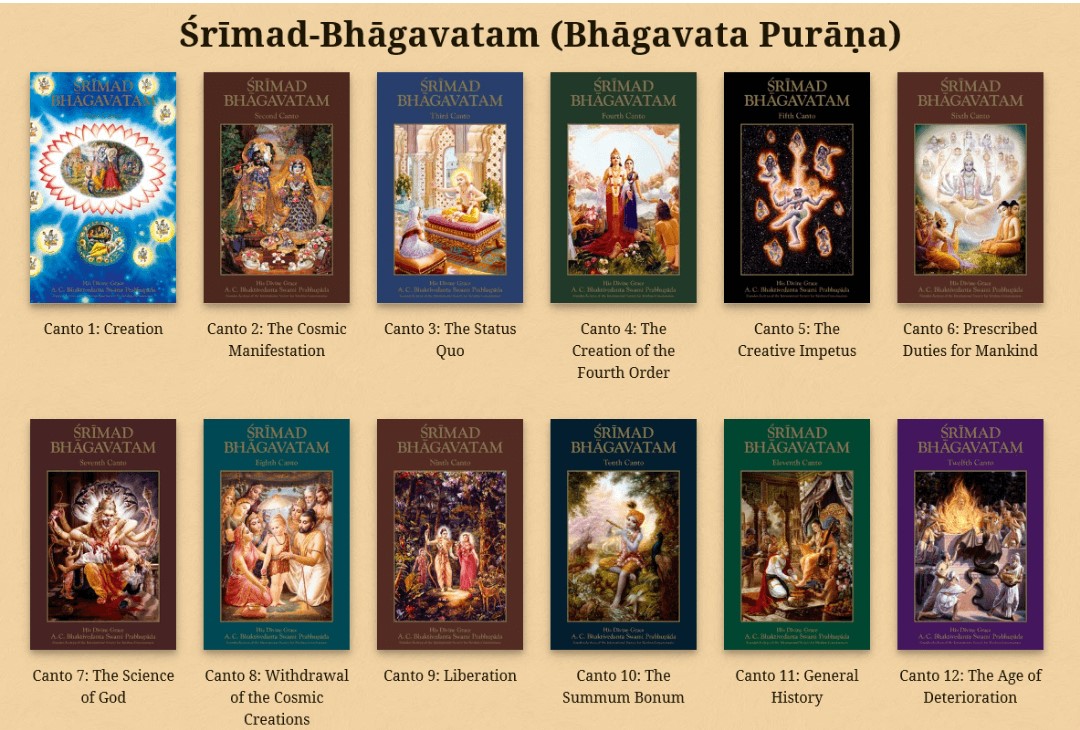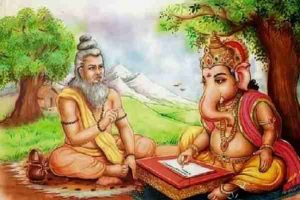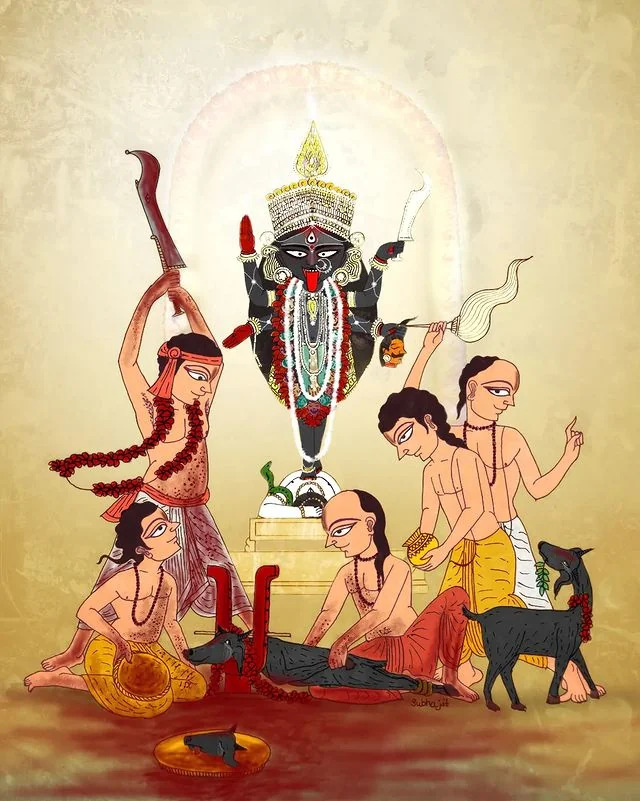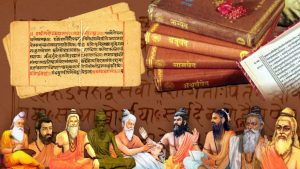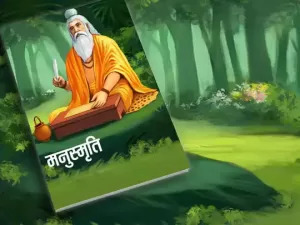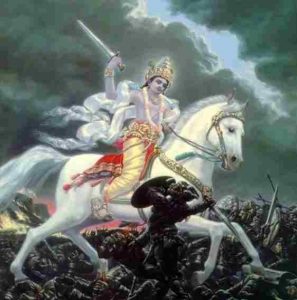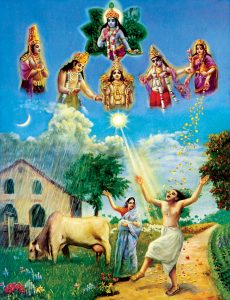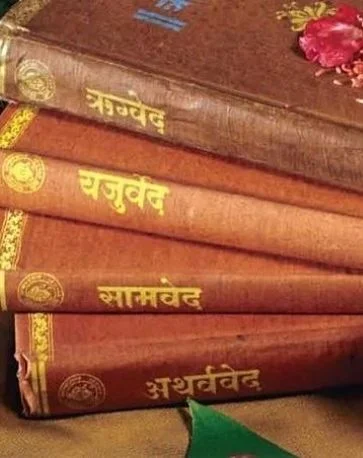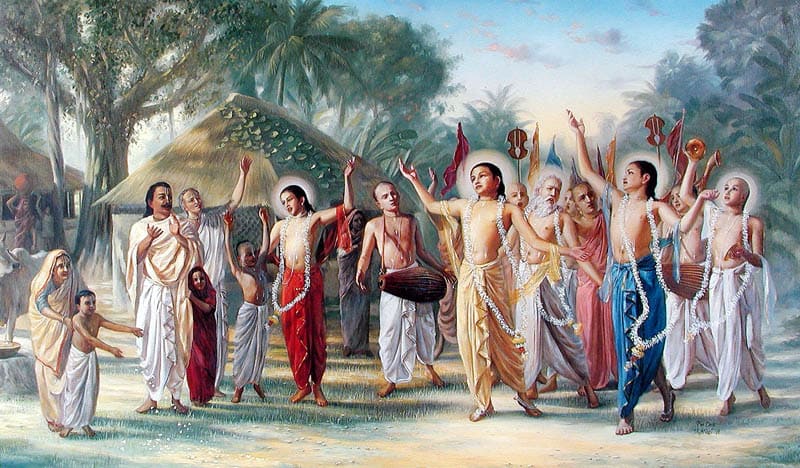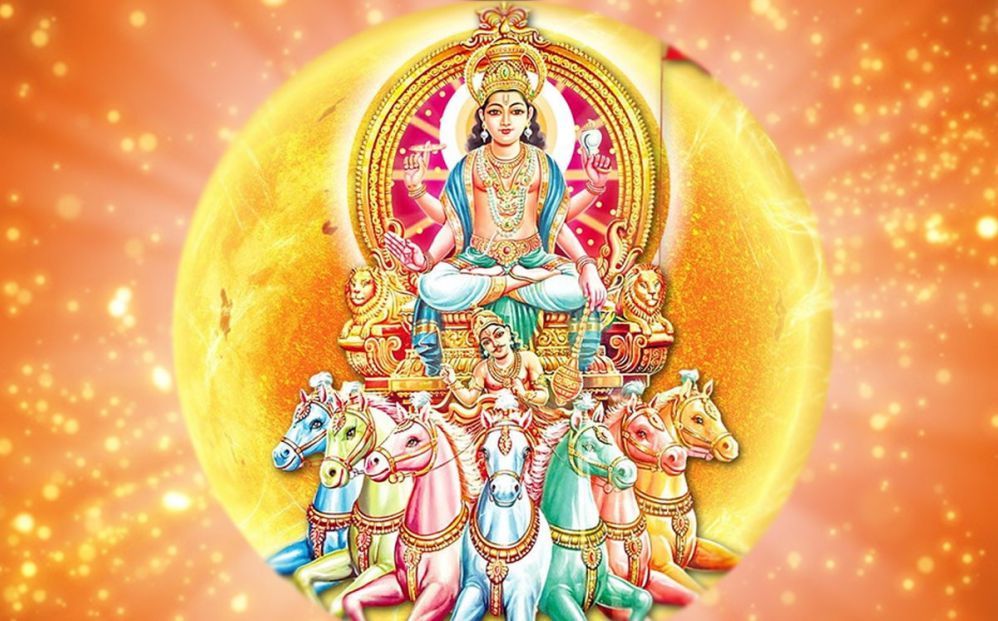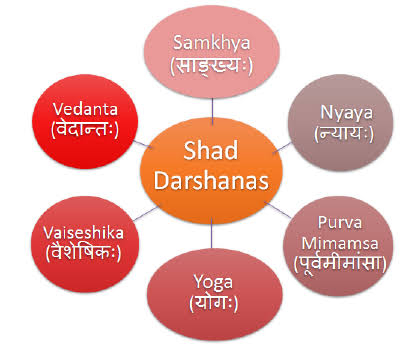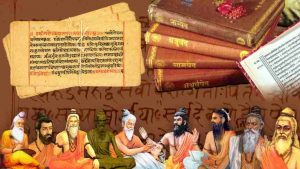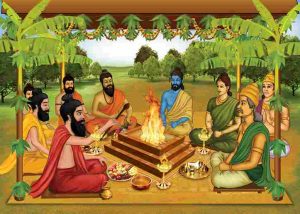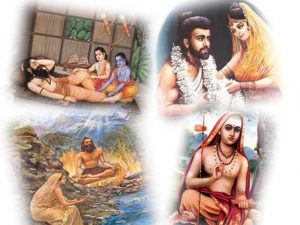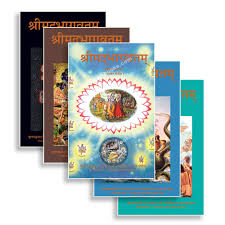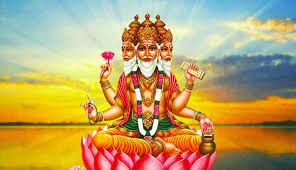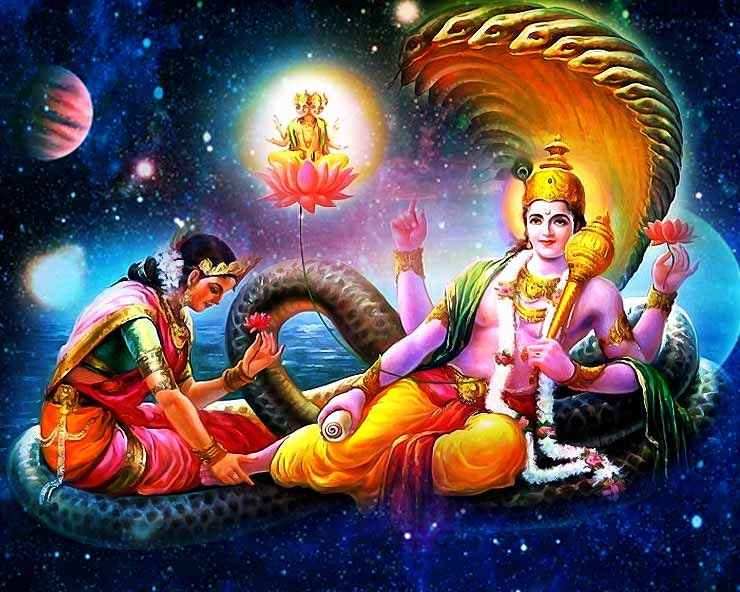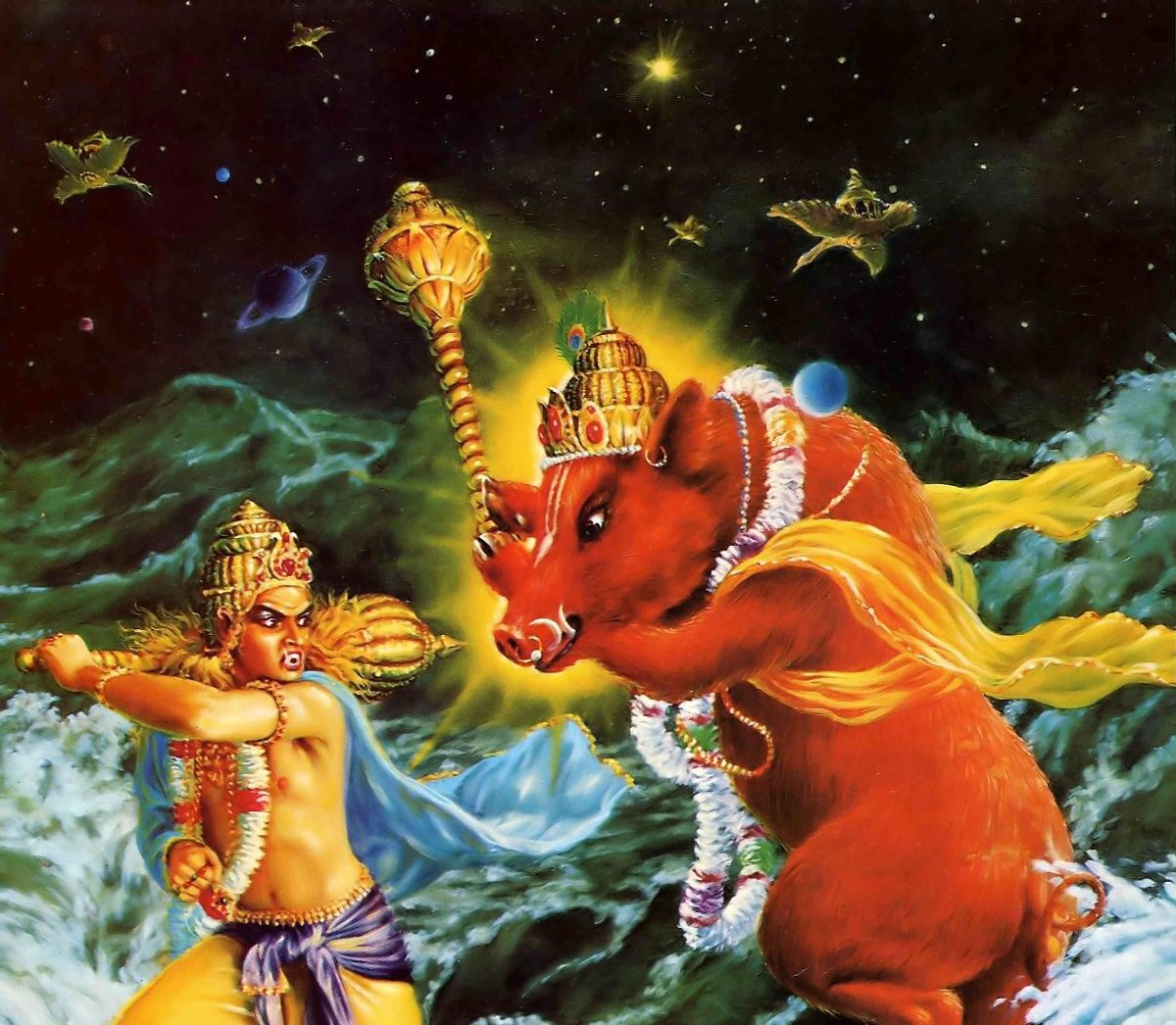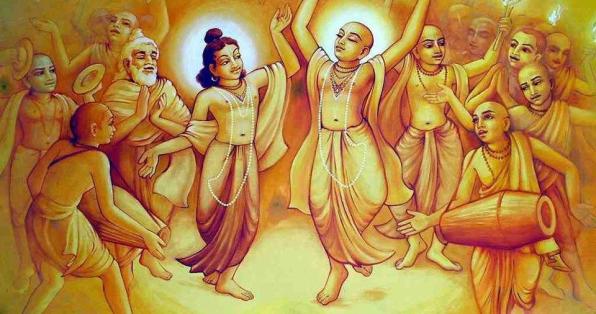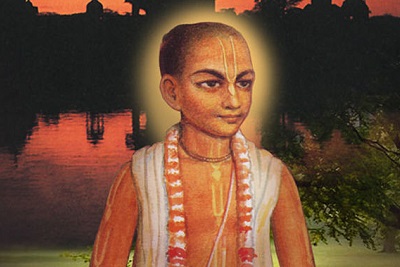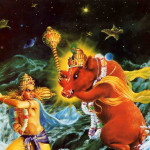The difference between jñāna (ordinary vedic knowledge) and vijñāna (self realization).
The difference between jñāna (ordinary Vedic knowledge) and vijñāna (self-realization) can be understood as follows. A conditioned soul, although cultivating Vedic knowledge, continues to identify himself to some extent with the material body and mind and consequently with the material universe. In trying to understand the world he lives in, the conditioned soul learns through Vedic knowledge that the Supreme Personality of Godhead is the one supreme cause of all material manifestations. He comes to understand the world around him, which he accepts more or less as his world. As he progresses in spiritual realization, breaking through the barrier of bodily identification, and realizes the existence of the eternal soul, he gradually identifies himself as part and parcel of the spiritual world, Vaikuṇṭha. At that time he is no longer interested in the Personality of Godhead merely as the supreme explanation of the material world; rather, he begins to reorient his entire mode of consciousness so that the central object of his attention is the Personality of Godhead. Such a reorientation is required, since the Supreme Lord is the factual center and cause of everything. A self-realized soul in the stage of vijñāna thus experiences the Personality of Godhead not merely as the creator of the material world but as the supreme living entity existing blissfully in His own eternal context. As one progresses in one’s realization of the Supreme Lord in His own abode in the spiritual sky, one gradually becomes disinterested in the material universe and ceases to define the Supreme Lord in terms of His temporary manifestations. A self-realized soul in the stage of vijñāna is not at all attracted by objects that are created, maintained and ultimately destroyed. The stage of jñāna is the preliminary stage of knowledge for those still identifying themselves in terms of the material universe, whereas vijñāna is the mature stage of knowledge for those who see themselves as part and parcel of the Supreme Lord.
Source: A.C. Bhaktivedanta Swami Prabhupada (2014 edition), “Srimad Bhagavatam”, Eleventh Canto, Chapter 19 – Text 15.

